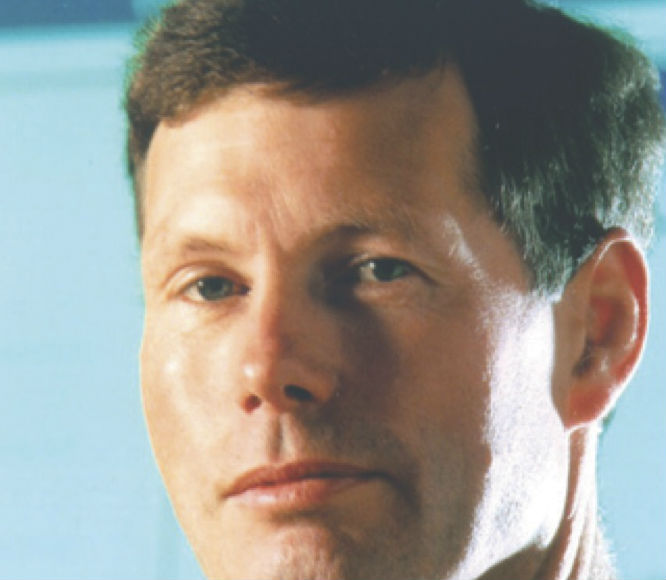Environment and sustainability is a sector that is, for obvious reason, growing in importance every day.
Thankfully, these days there is no shortage of very determined and talented individuals looking to work within it. And according to the Institute of Environmental Management & Assessment (IEMA) the vast majority never look back.
Late last year a paper called Preparing for the Perfect Storm suggested almost 90% of those who have moved into the area declare themselves “very satisfied” with their decision.
And it’s not just the instant karma that is attracting people; pay is also on the rise. In 2014 three-quarters of the professionals working in the sector were rewarded with a pay rise – up from 59% in 2013.
Junior or graduate level employees can expect to earn a respectable £23,000 – with CEO and director-level professionals pulling in up to £230,000 per year.
>See also: What’s in a name? The changing language of brands
One man who made the jump with both feet – and who has certainly never regretted his decision – is Angus McPherson.
Military service and beyond
McPherson studied engineering at Oxford and worked at a merchant bank before joining the army as an infantry officer. After a 13-year-stint in the military he was forced assess his future career options. The “most palatable” of these was to leave the army and look further afield.
McPherson freely admits that at this stage he had “no clear idea of what I was going to do”.
“Everyone kept asking the rather demanding question of ‘what do you do’? And the most natural answer I could give was ‘well what do you want me to do’?” he explains.
“As army officers we were used to doing what we were told to do, so adapting to that change in mindset alone was a challenge.”
McPherson ended up studying for an MBA at Edinburgh University. A six-month period working in the finance department at John Menzies followed and it was while there, he explains, that he was first inspired to move into the environmental sector.
“John Menzies were at the time a rival to WH Smiths and similar newsagents,” he says. “And as it happens they were going through a very similar process to me. They were pulling out of newsagents and were looking at all sorts of various opportunities.”
To prepare for the transition the company was looking at various ways it could improve its working models. One of these was its producer responsibility obligation (PRN). McPherson was tasked with looking at this issue and – in his own words – has “been doing it ever since”.
The Environment Exchange
His career arc in the environmental sector took him to the Environment Exchange – where he remains MD to this day.
“I realised that PRN is a area that really needed to be looked at and, as I own a farm, I thought there would be a bit of overlap there too,” he says. “I took it to the government, who looked at me quizzically but said ‘if that’s what you think then go ahead’.”
The organisation works with businesses on ways to minimise the environmental impact of their practices. This covers a range of subjects including “transport, factories, waste disposals and electronics”.
One area that McPherson focuses on is packaging. One of the first principles he wanted to embed among working practices is that “the polluter pays”.
>Related: Is it possible to make a successful transition from business to politics?
“One of the challenges is that if you take for example a producer of bottled beer, they have no idea where that bottle ends up,” he says.
“What they aspire to is that it gets recycled. But the only point of contact is at a mill where the glass arrives and is turned into the glass bottles.
“And so we came up with the idea that that mill produces a note saying that they promise to recycle a certain amount of bottles. Then the procurer requires that note from the mill to demonstrate that they are complying with European legislation.”
It is this kind of important work that has made the Environment Exchange one of the most significant bodies in the sector. To ensure this level of cooperation with large corporations it clearly requires people who are comfortable in that environment (no pun intended).
Money talks
But persuading people to think about the impact of their business is only one part of the puzzle. Explaining that lightweight packaging and other innovations deliver significant cost savings is one surefire way to ensure the issue “rattles all the way to the boardroom”.
McPherson’s career in the environmental sector continues to be hugely successful and he is keen to encourage others to do the same – even to the extent that he is currently recruiting two more people to join him.
“It’s certainly an expanding area,” he says. “Some people have difficulty when they think of an environmentalist – they imagine people like David Bellamy. But to be in the environmental sector is much broader world than that.
“There are three main areas – air, water and land. And they cover emissions, construction as well as headline issues like carbon dioxide and the quality of air.”
The environmental sector is clearly growing (some might say organically) and it seems not a moment too soon. For our planet’s future we can only hope it’s a trend that continues.
To enquire about membership of IEMA you can visit their website.






